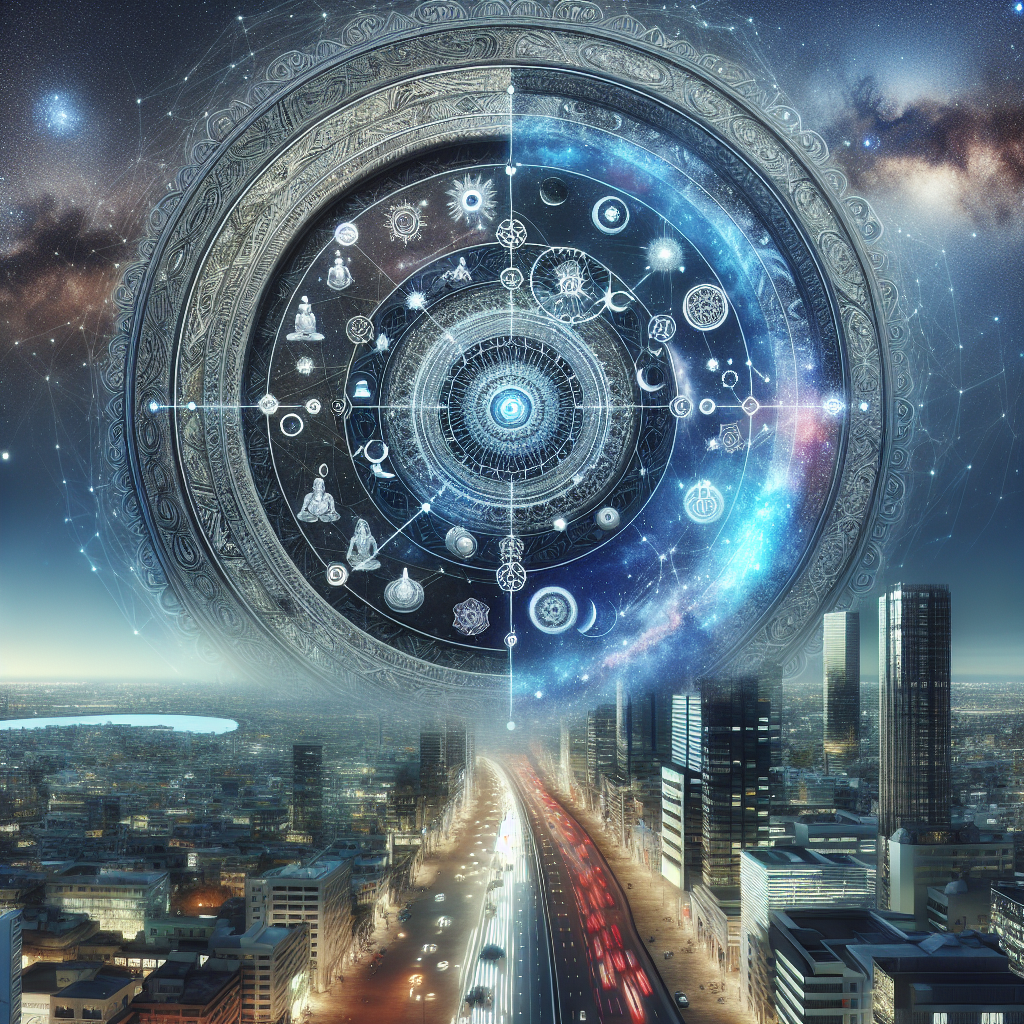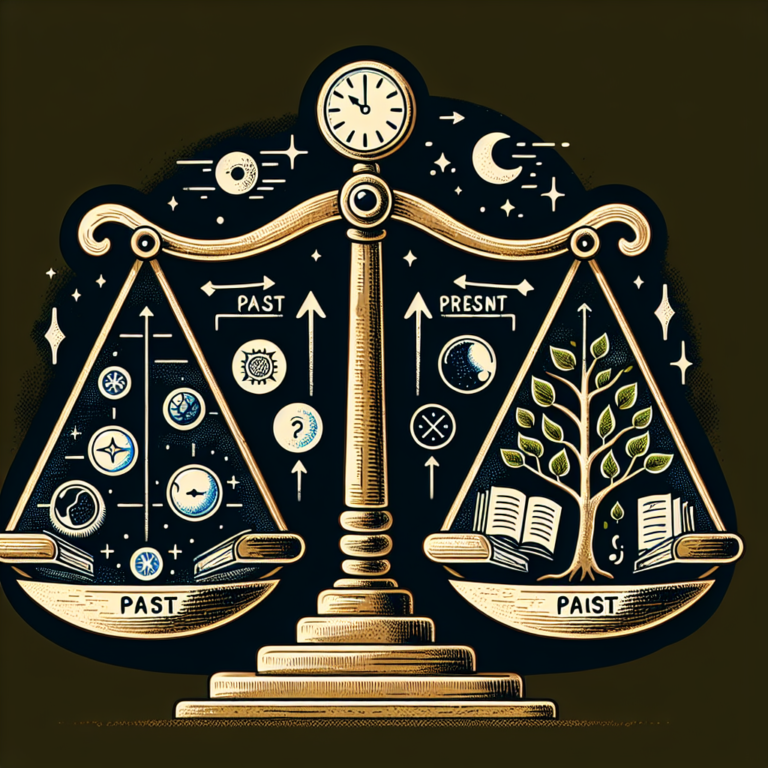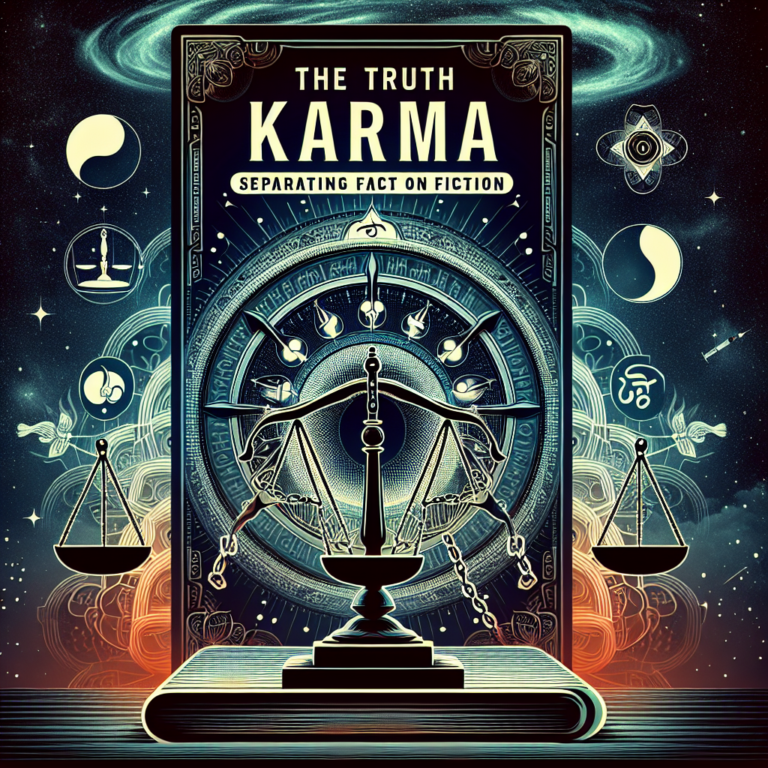In the folds of ancient philosophy lies a profound understanding of the universe’s mechanics, entwining concepts of karma and reincarnation as fundamental cornerstones of spiritual existence. For millennia, these ideas have shaped the moral landscapes and existential inquiries of countless cultures, particularly in Eastern traditions such as Hinduism, Buddhism, and Jainism. In today’s fast-paced modern society, where material pursuits often overshadow spiritual explorations, understanding the concepts of karma and reincarnation can provide crucial insights into the choices we make and the lives we lead.
The Foundations of Karma
Karma, originating from the Sanskrit word meaning ‘action’, refers to the universal law of cause and effect. This principle posits that every action has consequences, shaping one’s future experiences. Importantly, karma does not only apply to deeds but also extends to thoughts and intentions. The fundamental idea is that positive actions generate good karma, leading to favorable outcomes, while negative actions spawn bad karma, resulting in suffering or challenges.
Karma in Daily Life
In the modern context, the implications of karma are widely acknowledged, even by those who may not fully agree with its spiritual grounding. People often say, “What goes around comes around,” reflecting an instinctive understanding of this principle. Acts of kindness, honesty, and integrity often lead to positive returns, whether through strengthened relationships, opportunities, or personal growth. Conversely, dishonesty and disrespect often culminate in negative repercussions, whether through social isolation or internal discord.
For instance, consider a workplace scenario where an individual habitually undermines colleagues or takes credit for others’ work. While they may experience short-term gains, such behavior can ultimately taint their reputation and lead to isolation, mistrust, and even job loss. This illustrates how karma operates not just through immediate reactions but also through a ripple effect that spans across time and social interactions.
The Principle of Reincarnation
Reincarnation, the belief that after death, the soul is reborn into a new body, is intricately linked to the concept of karma. This cyclical journey of life, death, and rebirth is essential to understanding how karma operates across multiple lifetimes. According to this belief, the soul evolves through various incarnations, each influenced by the karma accrued in previous lives.
The Journey of the Soul
In many Eastern philosophies, life is perceived as part of an eternal cycle—samsara. Each life presents unique opportunities for spiritual growth, allowing individuals to learn from their experiences. Good karma can lead to a better quality of life in the next incarnation, while negative karma creates challenges intended for the soul’s learning.
In contemporary society, the idea of reincarnation invites us to reflect on our actions and their long-term implications—not just for ourselves but for the collective human experience. It fosters a sense of responsibility towards our choices; we recognize that our actions today shape not only our immediate circumstances but also our future selves.
Consider the transformative power of empathy and understanding in relationships. Engaging with others with compassion and intent can yield a positive atmosphere, fostering deeper connections. Reincarnation suggests that our interactions might reverberate through lifetimes, thus enhancing our sub-conscious awareness of the impact we have on the world.
Dancing Between Destiny and Free Will
The tension between karma and free will is one of the most complex discussions surrounding these concepts. Many wonder if we are merely puppets of our past actions or if we possess the autonomy to create change in our lives. The truth is a nuanced interplay. Karma influences the circumstances and opportunities we encounter, but we hold the power to respond to these situations.
For instance, someone born into a challenging environment may feel the weight of their predetermined circumstances. However, by cultivating awareness, making conscious decisions, and acting with intention, they can alter their life path. It emphasizes the idea that while our past shapes us, it does not solely define us.
The Relevance of Karma and Reincarnation in Modern Life
In the hustle of current life, where materialism and individualism often overshadow deeper connections, revisiting the principles of karma and reincarnation can be immensely beneficial. These concepts urge us to reflect on our choices and their potential impact on ourselves and others.
Increased Awareness: Understanding karma fosters mindfulness. It encourages individuals to think deeply about their actions and their potential to create positive change. With greater awareness comes improved social interactions and an enhanced sense of community.
Accountability for Actions: The idea of karma instills a sense of accountability in individuals. Recognizing that our choices have inevitable consequences makes us more responsible and considerate.
Empathy and Compassion: The belief in reincarnation can nurture empathy. Understanding that everyone carries their burdens from past lives fosters compassion towards others, leading to a kinder society.
Holistic Growth: Incorporating these ideas into modern life promotes holistic growth. By accepting the cyclical nature of life and the significance of our actions, we become better equipped to navigate challenges, accept imperfections, and pursue personal development.
- A Framework for Spiritual Exploration: Lastly, as the world evolves and becomes increasingly secular, karma and reincarnation provide pathways for spiritual exploration. They invite inquiry into existence, morality, and our place in the cosmos.
Conclusion
The eternal cycle of karma and reincarnation offers profound insights into our existence, serving as guiding principles for navigating modern life. Embracing these concepts can lead to greater awareness, empathy, and a sense of purpose. In a world that is often focused on immediate gratification, reflecting on our actions and their consequences can cultivate a deeper understanding of ourselves and our interconnectedness with all beings.
FAQs
Q1: What is karma?
A1: Karma is a spiritual concept that means ‘action’ in Sanskrit. It operates on the principle of cause and effect, where our actions, thoughts, and intentions lead to corresponding outcomes in our lives.
Q2: How does reincarnation relate to karma?
A2: Reincarnation is the belief that the soul is reborn into new bodies across various lifetimes. Karma influences the experiences and circumstances we face in these lives, shaped by actions from past incarnations.
Q3: Can we change our karma?
A3: Yes, we can change our karma through conscious actions, positive choices, and personal growth. Although we carry the weight of our past actions, our current decisions can create new karma that can alter our life path.
Q4: How do karma and reincarnation affect modern life?
A4: These concepts encourage mindfulness, accountability, and compassion. They push us to be more aware of our actions and their effects on ourselves and others, promoting personal and social growth.
Q5: Are there scientific views on karma and reincarnation?
A5: While karma and reincarnation are primarily spiritual beliefs, some scientists and psychologists explore them through the lenses of karma’s psychological implications and the possibility of past life memories. However, these concepts remain outside mainstream scientific validation.
It seems like you might have wanted to provide a specific prompt or request but didn’t include any details. Could you please elaborate on what you’re looking for? Whether it’s writing assistance, information on a topic, or something else, I’m here to help!, #Eternal #Cycle #Understanding #Karma #Reincarnation #Modern #Life, #Eternal #Cycle #Understanding #Karma #Reincarnation #Modern #Life, 1735260208, the-eternal-cycle-understanding-karma-and-reincarnation-in-modern-life





